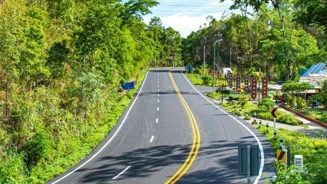Embark on an unforgettable road trip across India with 8 essential tips! Dive into planning, safety, and local culture. Read on!
Road trips in India! What's not to love? The open road, the changing landscapes,
the freedom to explore at your own pace – it's an experience unlike any other. But let's be real, a dream road trip can quickly turn into a nightmare if you're not properly prepared. Fret not, fellow travelers!

This article is your ultimate guide to planning a truly unforgettable road trip across our beautiful country. From meticulous planning to essential packing and staying safe on the highways, we've got you covered.
Get ready to hit the road with confidence and create memories that will last a lifetime!
The Route is the Root: Plan Your Itinerary (But Stay Flexible!)
First things first, decide where you want to go! India is a land of incredible diversity, with options ranging from the majestic Himalayas to the serene beaches of Goa, the historical sites of Rajasthan to the lush green hills of Kerala.
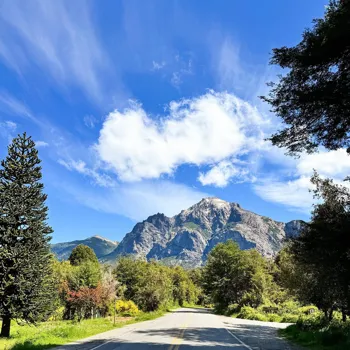
Choose a destination that excites you and aligns with your interests. Once you've got your destination in mind, it's time to map out your route. Use online tools like Google Maps or MapmyIndia to chart your course, keeping in mind the distance you're comfortable covering each day.
Don't try to cram too much into your trip – It's better to enjoy a few places thoroughly than to rush through many.
Research the places you'll be passing through. Look for interesting attractions, viewpoints, local eateries, and potential accommodation options.
Note down contact numbers for hotels or guesthouses along your route, especially if you plan to travel during peak season. However, remember to keep your itinerary flexible. The best road trips often involve spontaneous detours and unexpected discoveries.
Allow yourself the freedom to change plans based on your mood, weather conditions, or suggestions from locals. Embrace the element of surprise! One very important tip is, check for any road closures, diversions or restrictions on the planned route ahead of time.
You can do this by checking the official road transport websites or any local news channels. Getting stuck in an unexpected situation will only delay your journey and dampen your spirits.
Planning your route is most essential, to ensure a successful road trip.
The first step is to choose your destination based on interests, and map the route with available map tools. Research for all the possible pit stops and attractions that come along the way , keep hotel and guesthouse contacts handy.
Also, keep in mind that its equally important to incorporate flexibility in your schedule, so that any spontenous discoveries can be enjpyed at leisure.
Vehicle Check-Up: The Heart of Your Journey
Your vehicle is your trusty companion on this adventure, so make sure it's up to the task. Before you even think about packing your bags, take your car for a thorough check-up. Get the engine serviced, check the oil and coolant levels, inspect the brakes, tires, and battery.
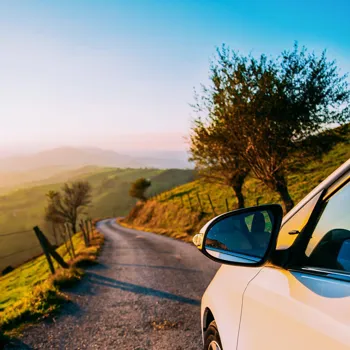
Ensure that all the lights are working properly, including headlights, taillights, and indicators. Carry essential tools like a car jack, wrench, screwdriver, and a spare tire in good condition. Knowing how to change a tire can be a lifesaver in case of a puncture.
Consider investing in a portable tire inflator; it can be incredibly useful to maintain optimal tire pressure, especially on long drives.
Also, do not ignore the small things. Top up all fluids: brake fluid, power steering fluid, and windshield washer fluid.
Remember to check the air filter, and ideally get it cleaned or replaced to ensure optimal engine performance. It could improve mileage as well. If your car's air conditioning isn't working well, get it checked.
Driving in the Indian summer heat can be extremely uncomfortable without proper cooling. Last but not the least, make sure all your car documents are up-to-date, including registration certificate (RC), insurance, and pollution under control (PUC) certificate.
Keep photocopies of these documents in the car and the originals safely at home.
Make sure that everything is working perfectly. Don't set off until your car is in top condition. Get your tires checked, and replace them if the treads are worn out.
Nothing is extra when it comes to the safety of your car and yourself, and get a portable tire inflator if possible. Check all the important fluids and get the AC checked as well, especially if its summer. Do not forget the documents and carry any duplicates or photocopies of them too.
Pack Smart, Pack Light: Essentials for the Road
Packing for a road trip is an art. You want to be prepared for anything, but you also don't want to overload your car with unnecessary baggage. Start with the essentials: comfortable clothing suitable for the weather conditions you'll encounter.
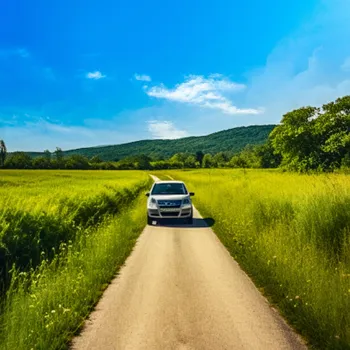
Pack layers, as temperatures can vary drastically, especially if you're travelling through mountainous regions. Don't forget comfortable shoes for driving and exploring. A first-aid kit is non-negotiable.
Include bandages, antiseptic wipes, pain relievers, motion sickness pills, and any personal medications you need.
Carry sufficient water and healthy snacks to keep you energized on the road. Pack reusable water bottles to minimize plastic waste.
A power bank is essential to keep your phones and other devices charged, especially when you're far from civilization. Download offline maps and navigation apps in case you lose internet connectivity. Pack a good quality camera to capture the stunning scenery and unforgettable moments.
Consider bringing a small portable music player loaded with your favourite tunes to keep you entertained on long stretches of highway. A blanket or a travel pillow can be incredibly useful for comfortable naps during pit stops.
Always be as minimalist as you can and pack only those things which are absolutely neccessary. Clothes, medicines, power banks, cameras, music players, snacks and water are always required. Make sure you carry enough water and food for the road.
This is very important because not every place will have food and water available.
Stay Safe on the Road: Drive Responsibly
Safety should be your top priority on any road trip. Always adhere to traffic rules and regulations. Wear your seatbelt at all times, and ensure that all passengers do the same. Avoid over speeding and maintain a safe distance from other vehicles.
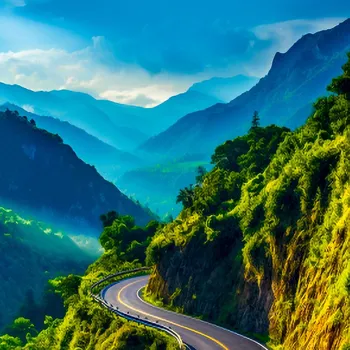
Be extra cautious while driving at night or in adverse weather conditions like rain or fog. Take regular breaks to avoid fatigue. Driving while tired can be just as dangerous as driving under the influence of alcohol. Share the driving responsibilities with another licensed driver if possible.
Avoid using your phone while driving. If you need to make a call or check directions, pull over to a safe spot.
Be aware of your surroundings and stay alert for potential hazards like potholes, stray animals, or reckless drivers.
If you're driving through unfamiliar territory, be extra cautious and avoid taking unnecessary risks. Keep your car doors locked and windows rolled up, especially when stopping in crowded areas. Carry a pepper spray or other self-defense device for emergencies.
Share your itinerary with family or friends and keep them updated on your progress. In case of an emergency, know the local emergency contact numbers and be prepared to call for help. And most importantly, trust your instincts.
If something feels wrong, don't hesitate to change your plans or seek assistance.
It is always important to drive safely and never drink and drive. Also make sure that your co-passengers are as safe as you are and that everyone is wearing their seatbelts too.
Drive within the speed limits or slower, and especially so if it's a rough road or bad terrain. Do not use your phone in any situation while driving and keep a pepper spray handy.
Embrace the Local Culture: Be a Responsible Tourist
One of the best things about a road trip is the opportunity to immerse yourself in the local culture. Take the time to interact with locals, learn about their traditions, and sample the regional cuisine. Be respectful of local customs and traditions.

Dress modestly when visiting religious sites, and avoid causing any disturbance to local communities. Support local businesses by buying local handicrafts, souvenirs, and produce. Be mindful of the environment and avoid littering.
Dispose of your trash responsibly and try to minimize your impact on the natural surroundings.
Learn a few basic phrases in the local language. Even a simple "hello" or "thank you" can go a long way in building rapport with locals.
Be open to new experiences and try to step outside of your comfort zone. You might be surprised by the unexpected discoveries you make along the way.
Remember, you are a guest in their home, so treat every place with respect and try to be as good as you can be to the environment and the local people.
Learn about the place that you are going to and be respectful above everything.
Learn a few phrases, and try to be as culturally appropriate and sensitive as posssible. You must respect the environment as well as everyone else around.
Capture the Moments: Document Your Journey
Years from now, you might not remember every detail of your road trip, but you'll always have photos and videos to relive those special moments. Invest in a good quality camera or use your smartphone to capture the stunning scenery, quirky encounters, and memorable experiences along the way.
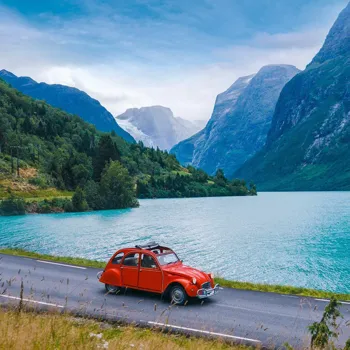
Take photos of yourself and your travel companions to create lasting memories. Keep a travel journal to document your thoughts, feelings, and observations. Write about the places you visit, the people you meet, and the challenges you overcome.
Share your travel stories with friends and family through social media or a personal blog. Create a photo album or scrapbook to preserve your memories in a tangible form. Consider making a short video montage of your road trip highlights.
Add music, narration, and special effects to create a personalized travel documentary. These memories will serve as a wonderful reminder of your unforgettable adventure for years to come.
Memories and experiences fade away, but photographs last a very long time.
The only way you can truly revisit a journey is to preserve all your memories in picture and video form.
AI Generated Content. Glance/InMobi shall have no liability for the content